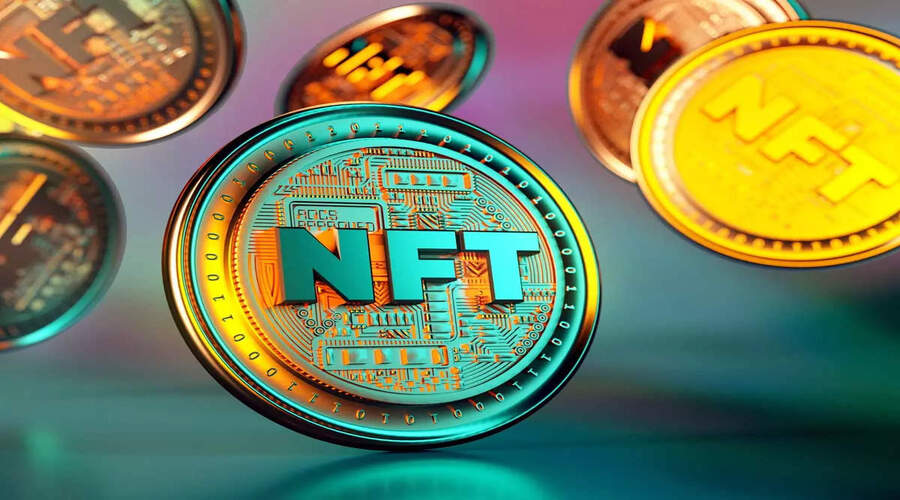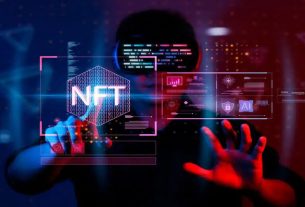Introduction
As the world of Non-Fungible Tokens (NFTs) continues to thrive, effectively managing and organizing your NFT collection becomes crucial. This article will explore best practices for managing NFT collections, including strategies for organization, curation, security, and growth. By following these practices, you can enhance the value, accessibility, and enjoyment of your NFT collection.
Organizing and Categorizing NFT Collections

Creating Collection Themes
One effective way to organize your NFT collection is by creating themes or categories. Grouping NFTs based on similar styles, artists, genres, or themes allows for easier navigation and enhances the overall aesthetic appeal of your collection. Consider creating folders or virtual galleries dedicated to specific themes, making it simpler to showcase or share your NFTs with others.
Tagging and Labeling NFTs
Tagging and labeling your NFTs with descriptive keywords or metadata can significantly improve organization and searchability. Assign relevant tags to each NFT, such as the artist’s name, artwork medium, or specific attributes. This approach enables efficient filtering and sorting when searching for specific NFTs within your collection.
Using Digital Wallets for Organization
Leveraging digital wallets that offer robust organizational features can streamline NFT management. Look for wallets that allow you to create custom collections, add notes or descriptions to each NFT, and provide intuitive sorting and filtering options. These digital wallet features can enhance your ability to manage and track your NFT collection effectively.
Curating and Showcasing NFT Collections
Building an Online Gallery
Creating an online gallery or portfolio dedicated to your NFT collection offers an excellent way to showcase your prized digital assets. Establish a visually appealing website or utilize dedicated NFT marketplaces that provide customizable galleries to exhibit your collection. Include high-quality images, detailed descriptions, and artist information to provide visitors with a comprehensive viewing experience.
Collaborating with Curators
Consider collaborating with experienced curators or art professionals who specialize in NFTs. Curators can assist in curating and promoting your collection, providing valuable insights and expertise. Collaborations can lead to opportunities for exhibitions, collaborations with other collectors or artists, and increased exposure within the NFT community.
Participating in NFT Exhibitions
Engaging with NFT exhibitions and events offers an excellent platform to showcase your collection
to a wider audience. Look for virtual or physical exhibitions dedicated to NFT art and participate by submitting your NFTs for display. Such events provide networking opportunities and enable you to connect with fellow collectors, artists, and enthusiasts.
NFT Collection Security
- Storing NFTs in Secure Wallets
Ensuring the security of your NFT collection is paramount. Store your NFTs in secure wallets that utilize robust encryption and multi-factor authentication. Choose reputable wallet providers that prioritize security and regularly update their software to address potential vulnerabilities. Keep your wallet software and devices up to date to safeguard your NFTs from unauthorized access.
- Implementing Multi-Factor Authentication
Enable multi-factor authentication (MFA) for your digital wallets and accounts associated with your NFT collection. MFA adds an extra layer of protection by requiring additional verification steps, such as a unique code generated on your mobile device, alongside your password. This significantly reduces the risk of unauthorized access to your NFT collection.
- Backing Up NFT Metadata and Artifacts
To mitigate the risk of data loss or accidental deletion, regularly back up the metadata and associated artifacts of your NFTs. This includes preserving any additional files or information related to your NFTs, such as images, descriptions, certificates, or provenance documentation. Store backups securely on external storage devices or reliable cloud storage platforms.
Managing NFT Collection Growth
Evaluating and Assessing New Additions
As your NFT collection grows, it’s important to evaluate potential additions thoughtfully. Conduct thorough research on artists, projects, and market trends before acquiring new NFTs. Assess the quality, uniqueness, and long-term value potential of each potential addition to ensure it aligns with your collection’s themes and objectives.
Selling or Trading NFTs
Regularly review your collection to identify NFTs that no longer align with your interests or collection goals. Consider selling or trading these NFTs to make room for new additions or to diversify your portfolio. Utilize reputable NFT marketplaces or engage with collectors interested in acquiring specific pieces from your collection.
Engaging with the NFT Community
Active engagement within the NFT community can provide valuable insights, networking opportunities, and potential collaborations. Participate in discussions, forums, and social media platforms dedicated to NFTs. Interact with fellow collectors, artists, and enthusiasts to exchange ideas, stay informed about market trends, and discover new opportunities for your collection.
NFT Collection Documentation
Maintaining thorough documentation for your NFT collection is essential for proper management. This includes keeping records of purchase receipts, transaction details, artist information, and any associated licenses or certificates. By documenting this information, you can easily track the history and provenance of your NFTs, ensuring transparency and authenticity within your collection.
NFT Collection Insurance
As the value of NFTs continues to rise, considering insurance for your NFT collection is a prudent step. NFT collection insurance provides coverage against risks such as theft, damage, or loss of digital assets. It’s important to consult with insurance providers specializing in NFTs to understand the coverage options available and ensure adequate protection for your valuable collection.
NFT Collection Valuation
Determining the value of your NFT collection can be challenging but crucial for investment purposes or assessing its overall worth. Consultation with experts, valuation services, or utilizing data from reputable NFT marketplaces can help estimate the value of individual NFTs or the collection as a whole. Regularly monitoring the market and staying informed about trends and sales can aid in evaluating the growth and potential of your collection.
NFT Collection Engagement Strategies
Engaging with the NFT community and leveraging social media platforms can contribute to the growth and exposure of your NFT collection. Consider sharing updates, insights, or behind-the-scenes information about your collection on platforms like Twitter, Discord, or dedicated NFT forums. Participate in community-driven initiatives, collaborations, or events to foster connections, increase visibility, and attract potential collectors and enthusiasts.
NFT Collection Diversification
Diversifying your NFT collection can mitigate risks and provide exposure to different artists, genres, or emerging trends. Explore new artists, genres, or NFT projects beyond your existing preferences to expand the scope and diversity of your collection. By diversifying, you can capture opportunities for growth and navigate potential shifts in the NFT market.
NFT Collection Preservation
Preserving the longevity of your NFT collection is important to ensure its value and accessibility over time. Consider implementing strategies such as regular backups of NFT files and associated metadata, adopting best practices for file formats and storage, and staying informed about technological advancements that may impact NFT preservation. By prioritizing preservation, you can safeguard your collection for future enjoyment and potential heritage.
NFT Collection Tracking and Analytics
Tracking and analyzing the performance of your NFT collection can provide valuable insights and inform decision-making. Utilize tracking tools or dedicated platforms that allow you to monitor sales, price fluctuations, and market trends related to your NFT holdings. By leveraging analytics, you can gain a deeper understanding of your collection’s value, market positioning, and potential areas for growth or optimization.
NFT Collection Education and Research
Continuously educating yourself about the NFT ecosystem, emerging artists, and industry trends is vital for managing a successful collection. Stay updated with news, publications, and online resources related to NFTs, attend webinars or conferences, and engage in research to deepen your knowledge. This ongoing learning process enables you to make informed decisions, spot opportunities, and contribute meaningfully to the NFT community.
NFT Collection Tax Considerations
As NFTs gain recognition as valuable assets, it’s important to be aware of the tax implications associated with buying, selling, and holding NFTs. Consult with tax professionals or advisors who specialize in digital assets to understand the tax obligations specific to your jurisdiction. Keeping accurate records of transactions, sale prices, and associated costs can help streamline tax reporting and compliance.
NFT Collection Philanthropy and Giving Back
Consider leveraging your NFT collection for philanthropic endeavors or supporting charitable causes. Collaborate with artists who donate proceeds from their NFT sales to charities, participate in fundraising initiatives, or auction select NFTs to raise funds for a specific cause. Giving back to the community through your NFT collection can create positive impact and contribute to social responsibility within the digital art space.
NFT Collection Collaboration and Partnerships
Exploring collaborations and partnerships within the NFT space can enhance your collection’s visibility and open up new opportunities. Consider partnering with artists, brands, or organizations to co-create NFTs or develop limited-edition collections. Collaborations can attract new audiences, provide unique offerings, and foster creativity and innovation within your collection.
NFT Collection Authentication and Verification
Ensuring the authenticity and verification of NFTs within your collection is crucial. Leverage blockchain-based verification services or third-party platforms that specialize in NFT authentication. By verifying the authenticity of your NFTs and documenting the verification process, you can establish trust, enhance the value of your collection, and protect against counterfeit or fraudulent assets.
NFT Collection Exhibition and Display
Consider exploring physical exhibition opportunities to showcase your digital NFT collection in physical spaces such as galleries, museums, or art events. Displaying your NFTs through digital frames, screens, or projections can bridge the gap between the digital and physical worlds. Physical exhibitions provide a unique experience for viewers and can generate further interest and exposure for your collection.
NFT Collection Community Engagement
Engaging with the NFT community is essential for building connections, gaining insights, and expanding the reach of your collection. Actively participate in online communities, attend virtual meetups or conferences, and join NFT-focused social platforms to connect with fellow collectors, artists, and enthusiasts. Engaging in discussions, sharing experiences, and collaborating within the community can enrich your NFT collection journey.
NFT Collection Legacy Planning
Developing a clear legacy plan for your NFT collection ensures its preservation and continuity for future generations. Consider documenting your intentions regarding the collection’s ownership, maintenance, and potential donations or bequests. Engage legal professionals specializing in digital assets to create a comprehensive plan that aligns with your wishes and safeguards the legacy of your NFT collection.
Conclusion
Effectively managing an NFT collection requires strategic organization, curation, security measures, and growth strategies. By implementing best practices such as creating collection themes, utilizing digital wallets, curating exhibitions, and prioritizing security, you can maximize the value and enjoyment of your NFT collection. Continuously adapt and refine your management approach as the NFT landscape evolves, ensuring that your collection remains vibrant, secure, and aligned with your vision.
I’m a best-selling author and leading authority in the world of cryptocurrency. I have been involved in the crypto community since 2012 and have helped numerous startups and organizations on blockchain strategy. I am a regular contributor to Forbes and CoinDesk, and my work has been featured in The Wall Street Journal, Bloomberg, Reuters, and other major media outlets. In addition to writing for publications, I am also a sought-after speaker on cryptocurrency and blockchain technology niches respectively.




